#Retelling and reimagining are different things.
Text
Jennifer Saint's Hera was mediocre.
This book should have been a short story OR it should not have been about Hera. I'm not sure why the concept was to write a novel because there's not enough narrative weight or consistency for a novel. I'm also not sure why it had to be a myth retelling reimagining.
A text based on another text is by definition working with intertext that is irremovable but Saint's Hera is simply much less interesting and complex than her mythical counterpart. She follows the usual for the genre biases and fails to introduce something new to Hera's characterization.
This book is not complex; the conflict is basic and shallow. Hera's and Zeus' domains of power are not explored deeply enough for it to be intriguing. The fact that Saint felt the need to alter a very important aspect of Hera's mythical landscape (her marital willingness and the consent of her intercourse) tells me she was not going for conflict complexity.
Hera's emotional landscape isn't really explored: Saint gives her exactly two emotions, anger and jealousy. Near the end of the book, her titular character even says that she doesn't know how to feel much but anger. Every other Olympian Goddess is just trying to convince Hera to submit, apparently. Hera is hostile to Demeter over petty offence. Zeus is genuinely ridiculously flat as a personage: Saint refuses to interact with Zeus as the prominent and positive cultural figure, instead reducing him with her own lack of understanding of his character.
Out of positives, there are some cute scenes I liked but they feel fleeting in the general narrative. I enjoyed the scene of Hera recognizing that she's being worshiped. I'm not sure why she assumed she wouldn't be, or why she's so "behind" on knowledge available to all the other Gods, or why she's so bad at being a Goddess when everyone else seems to have caught on, but it was a cute moment. Aphrodite is pleasant, overall, though she has little presence. Athena is pretty cute. Artemis is way more sympathetic than the titular character who also dislikes her. Apollo is plain.
I enjoy Hera as the mother/nurse of monsters. If that part with Echidna and the rest was the only narrative in a story, I'd probably actually enjoy the book. But, alas.
As a literary media, the book stops being a proper novel around the middle. The sole consistent narrative is Hera's becoming as the queen, which ends with Typhon's death as a plotline. After that, the books goes on as a set of disconnected myths. It is not a novel: it lacks plot structure. It's a collection of myth reimaginations with a shifted POV.
Overall, it's a "meh" book to me. It doesn't do much damage because it's not bold enough to try at something new: nearly every concept Saint introduces as a change to Hera's myths has been presented before. It's not really a retelling, the stories are changed too much in factual/functional ways. It's a mediocre reimagining with some cute scenes/interactions that follows in the steps of the same biases as other books of the genre do. I did not find the ending meaningful or inspiring. I understand what Saint was trying to go for but it did not at all feel empowering or strong because of her shallow execution.
#TEXT#I genuinely think if you come out of analyzing Zeus and Hera as a couple thinking 'poor Hera evil Zeus' you're illiterate.#Retelling and reimagining are different things.#I don't know how to tell you this but 'complexity' of a female character does not boil down to putting an 'evil twist' to her life.#At the end of the day 'Hera' did not invite us into Hera's deep inner landscape because Saint's Hera has two emotions + regret.#Overall yet another book that has me thinking '...sorry you hate your husband I guess. Don't make it everyone's problem.'#If you want a meaningful relationship between Hera and Demeter please read Winter Harvest.#greek mythology#literary criticism#myth retelling#jennifer saint#anti jennifer saint#?
22 notes
·
View notes
Text
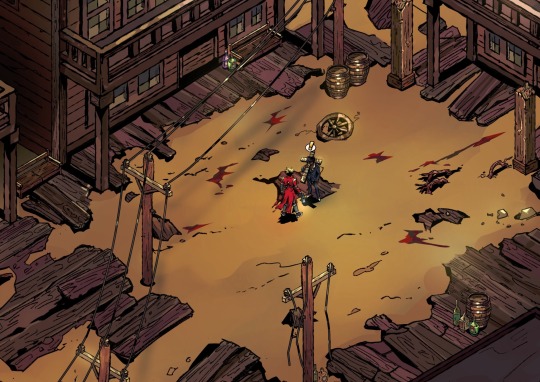
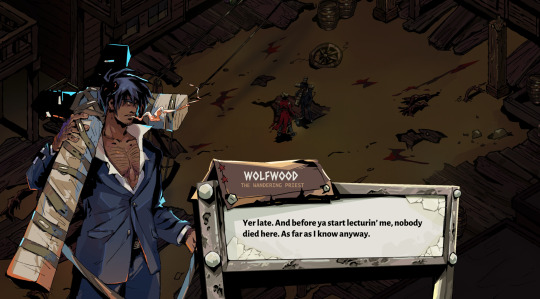
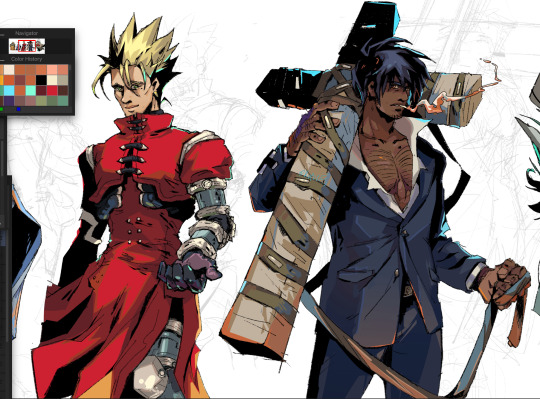
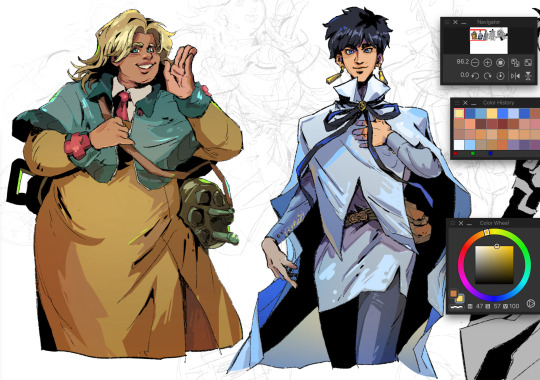
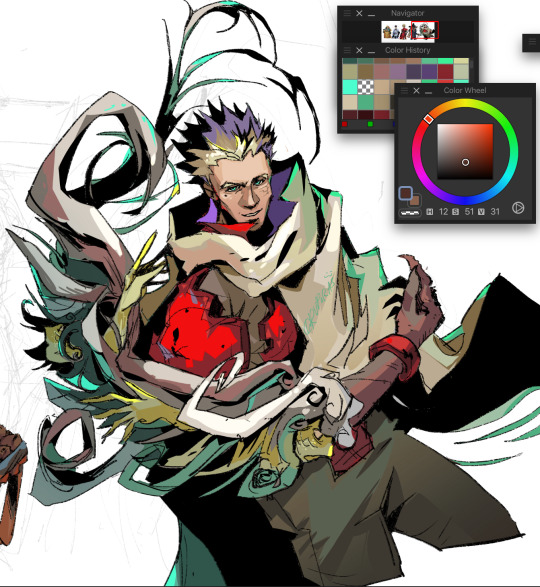
trigunned the hades or hadesed the trigun (id in alt)
#trigun#trigun maximum#nicholas d wolfwood#vash the stampede#meryl stryfe#milly thompson#millions knives#ruporas art#type of shit ive been on lately bc ive been playing an obsessive amount of hades 2 lmfao… ofc imstead of drawing fansrt for hades#i channel that energy into trigun?😭 SEE.. the thing is. i am ALWAYS thinking about a trigun game… like an action story game#it is rotating in my brain 24/7 and now after 7billion years i finally pick up a video game#and the inspiration sparked. obviously this is just a mere mimic of an existing media... but im thinking about the plot of max now#executed differently between mediums… webbing a new retelling of the original story as game mechanics allows you - thinking of the#new roles the characters would take. like wolfwood here is not Constantly by vash’s side but he will show up once a run to clear out an#encounter. shows up seldomly at home base to make gifting difficult... an existing companion and still journeys on his own. for more#relations options merylmilly will also have occasions where they separate so vash can speak to them individually - the gungho are not bosse#most of them get the roles of giving “boons” i think.. BUT ANYWAY thats me reimagining trigun into hades. now imagining trigun into an#ORIGINAL video game.... ough... ohhh....guhh... I WANT IT SO BAD!!!!!!!!#this was just a fun exercise... im thinking about doing more but i think i shouldactually draw some hades 2 fanart first
7K notes
·
View notes
Text
I know that this might only be a me thing but I’ve started thinking of the Dune movies as retellings instead of adaptations, and that makes the changes make better sense to me.
No, it’s not an adaptation where making huge changes doesn’t make sense, it’s a retelling and of course there will be changes with retellings that the whole point!!
#very much so#need to quit using the word adaptation actually when it comes to movies based on books#cause honestly??! they always suck!!! we don’t want the movie to be different from the book we want to see what happens in our heads when we#are reading!!! so calling things retellings or reimaginings makes so much more sense then adaptations#Im tired and rambling and I know I’m not making sense rn but I’m posting anyway!!#good night y’all
3 notes
·
View notes
Text
In defense of retellings & reimaginings
I'm not going to respond to the post that sparked this, because honestly, I don't really feel like getting in an argument, and because it's only vaguely even about the particular story that the other post discussed. The post in question objected to retellings of the Rape of Persephone which changed important elements of the story -- specifically, Persephone's level of agency, whether she was kidnapped, whether she ate seeds out of hunger, and so on. It is permissible, according to this thesis, to 'fill in empty spaces,' but not to change story elements, because 'those were important to the original tellers.' (These are acknowledged paraphrases, and I will launch you into the sun if you nitpick this paragraph.)
I understand why to the person writing that, that perspective is important, and why they -- especially as a self-described devotee of Persephone -- feel like they should proscribe boundaries around the myth. It's a perfectly valid perspective to use when sorting -- for example -- which things you choose to read. If you choose not to read anything which changes the elements which you feel are important, I applaud you.
However, the idea that one should only 'color in missing pieces,' especially when dealing with stories as old, multi-sourced, and fractional as ancient myths, and doing so with the argument that you shouldn't change things because those base elements were important to the people who originally crafted the stories, misses -- in my opinion -- the fundamental reason we tell stories and create myths in the first place.
Forgive me as I get super fucking nerdy about this. I've spent the last several years of my life wrestling with the concept of myths as storytelling devices, universality of myths, and why myths are even important at all as part of writing on something like a dozen books (a bunch of which aren't out yet) for a game centered around mythology. A lot of the stuff I've written has had to wrestle with exactly this concept -- that there is a Sacred Canon which cannot be disrupted, and that any disregard of [specific story elements] is an inexcusable betrayal.
Myths are stories we tell ourselves to understand who we are and what's important to us as individuals, as social groups, and as a society. The elements we utilize or change, those things we choose to include and exclude when telling and retelling a story, tell us what's important to us.
I could sit down and argue over the specific details which change over the -- at minimum -- 1700 years where Persephone/Kore/Proserpina was actively worshiped in Greek and Roman mystery cults, but I actually don't think those variations in specific are very important. What I think is important, however, is both the duration of her cults -- at minimum from 1500 BCE to 200CE -- and the concept that myths are stories we tell ourselves to understand who we are and what's important to us.
The idea that there was one, or even a small handful, of things that were most important to even a large swath of the people who 'originally' told the store of the Rape of Persephone or any other 'foundational' myth of what is broadly considered 'Western Culture,' when those myths were told and retold in active cultic worship for 1700 years... that seems kind of absurd to me on its face. Do we have the same broad cultural values as the original tellers of Beowulf, which is only (heh) between 1k-1.3k years old? How different are our marital traditions, our family traditions, and even our language? We can, at best, make broad statements, and of inclusive necessity, those statements must be broad enough as to lose incredible amounts of specificity. In order to make definitive, specific statements, we must leave out large swaths of the people to whom this story, or any like it, was important.
To move away from the specific story brought up by the poster whose words spun this off, because it really isn't about that story in particular, let's use The Matter of Britain/Arthuriana as our framing for the rest of this discussion. If you ask a random nerd on Tumblr, they'd probably cite a handful of story elements as essential -- though of course which ones they find most essential undoubtedly vary from nerd to nerd -- from the concept that Camelot Always Falls to Gawain and the Green Knight, Percival and the grail, Lancelot and Guinevere...
... but Lancelot/Guinevere and Percival are from Chrétien de Troyes in the 12th century, some ~500 years after Taliesin's first verses. Lancelot doesn't appear as a main character at all before de Troyes, and we can only potentially link him to characters from an 11th century story (Culhwch and Olwen) for which we don't have any extant manuscripts before the 15th century. Gawain's various roles in his numerous appearances are... conflicting characterizations at best.
The point here is not just that 'the things you think are essential parts of the story are not necessarily original,' or that 'there are a lot of different versions of this story over the centuries,' but also 'what you think of as essential is going to come back to that first thesis statement above.' What you find important about The Matter of Britain, and which story elements you think can be altered, filed off or filled in, will depend on what that story needs to tell you about yourself and what's important to you.
Does creating a new incarnation of Arthur in which she is a diasporic lesbian in outer space ruin a story originally about Welsh national identity and chivalric love? Does that disrespect the original stories? How about if Arthur is a 13th century Italian Jew? Does it disrespect the original stories if the author draws deliberate parallels between the seduction of Igerne and the story of David and Bathsheba?
Well. That depends on what's important to you.
Insisting that the core elements of a myth -- whichever elements you believe those to be -- must remain static essentially means 'I want this myth to stagnate and die.' Maybe it's because I am Jewish, and we constantly re-evaluate every word in Torah, over and over again, every single year, or maybe it's because I spend way, way too much time thinking about what's valuable in stories specifically because I write words about these concepts for money, but I don't find these arguments compelling at all, especially not when it comes to core, 'mainstream' mythologies. These are tools in the common toolbox, and everybody has access to them.
More important to me than the idea that these core elements of any given story must remain constant is, to paraphrase Dolly Parton, that a story knows what it is and does it on purpose. Should authors present retellings or reimaginings of the Rape of Persephone or The Matter of Britain which significantly alter historically-known story elements as 'uncovered' myths or present them as 'the real and original' story? Absolutely not. If someone handed me a book in which the new Grail was a limited edition Macklemore Taco Bell Baja Blast cup and told me this comes directly from recently-discovered 6th century writings of Taliesin, I would bonk them on the head with my hardcover The Once & Future King. Of course that's not the case, right?
But the concept of canon, historically, in these foundational myths has not been anything like our concept of canon today. Canon should function like a properly-fitted corset, in that it should support, not constrict, the breath in the story's lungs. If it does otherwise, authors should feel free to discard it in part or in whole.
Concepts of familial duty and the obligation of marriage don't necessarily resonate with modern audiences the way that the concept of self-determination, subversion of unreasonable and unjustified authority, and consent do. That is not what we, as a general society, value now. If the latter values are the values important to the author -- the story that the author needs to tell in order to express who they are individually and culturally and what values are important to them* -- then of course they should retell the story with those changed values. That is the point of myths, and always has been.
Common threads remain -- many of us move away from family support regardless of the consent involved in our relationships, and life can be terrifying when you're suddenly out of the immediate reach and support of your family -- because no matter how different some values are, essential human elements remain in every story. It's scary to be away from your mother for the first time. It's scary to live with someone new, in a new place. It's intimidating to find out that other people think you have a Purpose in life that you need to fulfill. It's hard to negotiate between the needs of your birth family and your chosen family.
None of this, to be clear, is to say that any particular person should feel that they need to read, enjoy, or appreciate any particular retelling, or that it's cool, hip and groovy to misrepresent your reworking of a myth as a 'new secret truth which has always been there.' If you're reworking a myth, be truthful about it, and if somebody told you 'hey did you know that it really -- ' and you ran with that and find out later you were wrong, well, correct the record. It's okay to not want to read or to not enjoy a retelling in which Arthur, Lancelot and Guinevere negotiate a triad and live happily ever after; it's not really okay to say 'you can't do that because you changed a story element which I feel is non-negotiable.' It's okay to say 'I don't think this works because -- ' because part of writing a story is that people are going to have opinions on it. It's kind of weird to say 'you're only allowed to color inside these lines.'
That's not true, and it never has been. Greek myths are not from a closed culture. Roman myths are not sacrosanct. There are plenty of stories which outsiders should leave the hell alone, but Greek and Roman myths are simply not on that list. There is just no world in which you can make an argument that the stories of the Greek and Roman Empires are somehow not open season to the entire English-speaking world. They are the public-est of domain.
You don't have to like what people do with it, but that doesn't make people wrong for writing it, and they certainly don't have to color within the lines you or anyone else draws. Critique how they tell the story, but they haven't committed some sort of cultural treachery by telling the stories which are important to them rather than the stories important to someone 2500 years dead.
****
*These are not the only reasons to tell a story and I am not in any way saying that an author is only permitted to retell a story to express their own values. There are as many reasons to tell a story as there are stories, and I don't really think any reason to create fiction is more or less valid than any other. I am discussing, specifically, the concept of myths as conveyors of essential cultural truths.
2K notes
·
View notes
Text
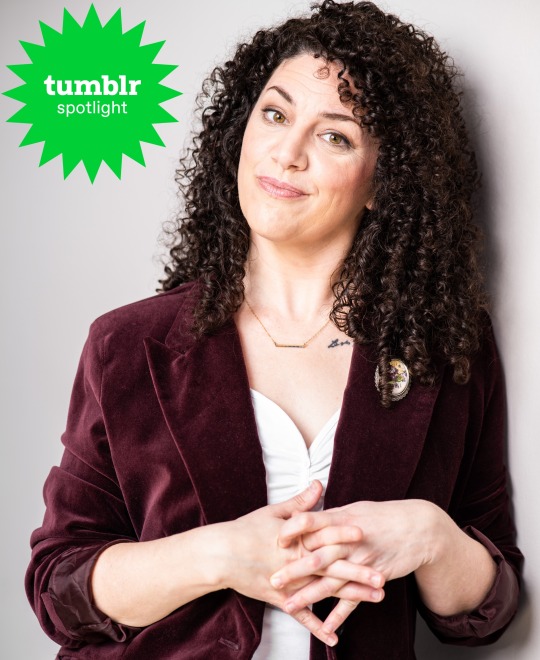
Writer Spotlight: Rose Sutherland
Rose Sutherland @rosesutherlandwrites is a Toronto-based writer who grew up a voracious reader with an overactive imagination in Nova Scotia (where she once fell off a roof trying to re-enact Anne of Green Gables!). She's been to theatre school in NYC, apprenticed at a pâtisserie in rural France, and currently moonlights as an usher and bartender—in between writing queer folktales, practicing yoga, dancing, singing, searching out amazing coffee and croissants, and making niche jokes about Victor Hugo on the internet. She's mildly obsessed with the idea of one day owning a large dog, several chickens, and maybe a goat. A Sweet Sting of Salt is her debut novel.
Keep reading for more about character arcs in A Sweet Sting of Salt, Rose's favorite fanfic tropes, and some excellent reading recs 👀
Can you tell us about A Sweet Sting of Salt and how you came to write it?
A Sweet Sting of Salt is a queer (f/f) historical reimagining of the classic folktale of the selkie wife, set in 1830’s Nova Scotia. I call it a “reimagining” because while it draws on the folktale, it’s not a retelling of that tale so much as a story playing out in relation to that mythology. I’d wanted to write something centering a love story between two women for a while, but the initial spark came from a Tumblr post! It suggested the idea of selkies testifying before the UN as victims of human trafficking, which reminded me of all the things I disliked about the original folktale and its inherent darkness that is generally glossed over, starting me down the rabbit hole toward finding my own story.
How did you approach research for A Sweet Sting of Salt, and what is a favorite historical fact you learned?
I joke that I did a lot of research by osmosis: I already had a lot of base knowledge about the location, having grown up in Nova Scotia, and then set the story in a period that I’ve been absorbing information about in a low-key way for ages—1832 is also the year of the student rebellion in Les Mis, so I’ve been gleaning tidbits about this era since I first got into the musical and book back in high school. However, I had to do more specific research into things like British divorce law, period midwifery, and animal husbandry. I also visited some small, hyper-local museums on the South Shore that gave me an invaluable glimpse into daily life. I also did some fun practical research into things like “How long does it take to walk from x to y?” and “How cold IS a plunge into this body of water in March?” (Spoiler: Very.)
A fact that fascinated me but didn’t make it into the book was that some early European settlers in the area were granted lands by luck of the draw, pulling from a deck of playing cards: Each card was assigned to a specific 50-acre lot, and whatever you pulled, you were stuck with it.
When we meet them, Jean and Muirin are isolated for different reasons. What do you hope readers still searching for their people take away from A Sweet Sting of Salt?
That there’s always hope. It’s valuable and important to keep reaching out to the world around you, to be open, and not cut yourself off—the biggest reason for Jean’s loneliness at the beginning of this story is the way she has come to keep everyone around her at arm’s length, shutting herself away out of fear, and refusing to let anyone truly get to know her because she thinks that’s the best way to protect herself from being hurt again. Reaching out to others can take a real act of courage, especially if you’ve had bad experiences in the past, but “your people” will reach back to you.
Found family elements play a strong role throughout the novel, within supernatural and mundane settings and across species. Was this something you intended from the beginning, or did this grow out of writing the relationship between Jean and Muirin?
I always intended for Jean to have a found family of this type, which is something that a lot of queer people identify with, but those bonds also got stronger and more meaningful as I wrote, especially once Jean and Muirin began growing into their own family unit—their new relationship and the real danger that comes along with it put pressures on Jean’s other relationships that I hadn’t originally considered. Disagreements with Anneke and Laurie over Jean’s choices arise from their deep concern and love for her, and her own love and care for them, reflected in her responses, is a big part of what made them feel like a real family, for me. Jean and Laurie always having each other’s backs while also being the first to call one another out on their bullshit ended up being one of my favourite dynamics in the whole book.
The selkie myth carries an inherent element of transformation. What is a character transformation you most enjoyed writing, and why?
On a character level, the change in Jean’s worldview following a conversation with her childhood sweetheart meant a lot to me—it heals an old wound for her. I love how grounded and self-assured she is afterward, in spite of the daunting task still ahead of her. But my favourite transformation to write was the antagonist’s mask-off moment, where they directly threaten Jean for the first time. It’s so sly and coded so that only she will understand the menace behind it, a real dun-duh-dunnn moment, which was a lot of fun for me—I also enjoy the foreshadowing elements in that exchange.
This is your debut novel. Did anything surprise you about getting it from manuscript to published book?
Oh my gosh, how LONG it took! After I finished the original draft and decided it was worth attempting to publish, I spent over a year revising based on my own thoughts, input from beta readers, critique partners, and my mentor, Maureen Marshall (whom I connected with through the now defunct Author Mentor Match program, and whose book, The Paris Affair—about a young gay engineer attempting to help Gustave Eiffel secure the funding to build a certain celebrated Parisian landmark— is coming out in May). After that came a full year of querying agents and getting rejected. A lot. People loved Salty but weren’t quite sure what to do with her or where the book would fit in “the market,” which was hard to deal with at the time but is hilarious in retrospect: Salty was snapped up less than a month after she finally went out on submission! But that was back in 2022, and the book is only coming out now. Publishing can be painfully slow.
You’ve written fanfic in the past—do you have a favorite fanfic trope?
I’m not sure either of these counts as a trope, but I adore a character that’s “pure of heart, dumb of ass”, and love a truly unhinged Fanon Explanation For Canon Object. As a longtime Les Mis stan, I ship Tholomyes/Getting Punched. If you know, you know.
Do you have any favorite queer retellings of folktales you can recommend?
Right here on Tumblr, I’m a huge fan of @laurasimonsdaughter, who writes delightful riffs on classic folktales, truly inventive urban fantasy spins on old lore, and her own original folktales.
I’m currently reading Spear, an amazing queer, gender-bent, Arthurian novella by Nicola Griffiths. Anna Burke’s books Thorn and Nottingham are up next on my TBR. Lately, I’ve been reading a lot of brilliant queer historicals that aren’t retellings (I recently loved Suzette Meyr’s The Sleeping Car Porter and Heather O’Neil’s When We Lost Our Heads) and wonderful historical retellings that aren’t queer (I highly recommend Molly Greeley’s beautiful, heartbreaking Marvelous, about the real-life couple that inspired Beauty and the Beast). Queer, historical retellings aimed at adults seem to be considered quite niche, still, and can take some digging to find! So, throwing this out to Tumblr: Do you have recommendations for me?
Do you have a writing routine? Is there a place/state of being/playlist you find most conducive to your writing practice?
My routine is chaotic at best, but I find I do my best work earlier in the day, so I usually scribble in my journal while I have breakfast, and then progress to working on my current project as I drink my second cup of coffee. I’m lucky—my day job is an evening gig, which mostly allows me to write on my preferred schedule… but I’ve also been known to have a bolt of inspiration strike at 10pm and dash home to write until well past midnight on occasion. Nothing quite like the hyperfocus zone!
What’s next for you? Are you working on anything you can tell us about?
No official news yet, but I’m currently working on a story set in 18th-century provincial France based on a true unsolved mystery of the past. It has me delving into a very specific branch of French folklore, and I hope future readers will pick up on common threads with one popular fairytale in particular. I’m really excited about where this one is headed, but keeping the details close to my chest for now!
Thank you Rose for taking the time to answer our questions! If you love queer fantasy and old folktales, grab yourself a copy of A Sweet Sting of Salt, and be sure to share your queer folktale reading recs with Rose on @rosesutherlandwrites!
#writer spotlight#writers' room#booklr#writers on tumblr#writing community#writeblr#creative writing#debut author#reading#rose sutherland#a sweet sting of salt#selkies#myths#fanfic#Les Mis#queer fiction#f/f fiction#queer folktales
222 notes
·
View notes
Note
fantasy sometimes doesn't afford itself the ability to fantasize about a better world with many of the same problems of real life. thankfully ive found fantasy thatfantasize about things like gender roles, orientations, social status, etc. being more accepting, and the world kinder more often than not. question is, as hard as it is to find solid urban fantasy, are there anyworks you know of that use itself to imagine a optimal city for us urban nerds? magic public works, free dragon transit?
So there is a real problem in the fantasy and sci-fi genres that they often have a failure of revolutionary imagination, as I’ve termed it. We’re so used to not just the world as it is but also the public historical imagination of how change happens, that even in art that’s supposed to be about radically reimagining our world or new worlds, we often revert back to the familiar. (I find this tic particularly annoying in alternate history, which is supposed to be about imagining how the world could have evolved differently, but often reverts back to a retelling of (often bad) history with the numbers filed off.)
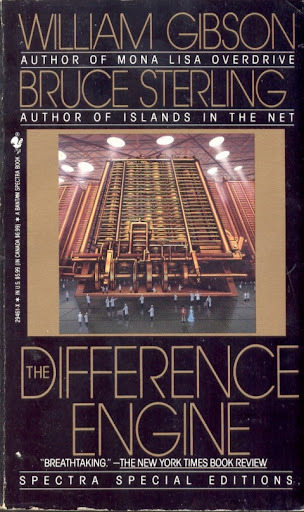
(A sadly rare counter-example.)
You raise a fascinating question about the potential for urbanist fantasy. This is often quite rare in urban fantasy, because often out of a desire to maintain the verisimilitude of urban life, they default to a masquerade scenario which renders it impossible to explore the impact of magic on transit, housing, and other aspects of urbanism because the central conceit is that people with magic are trying to hide and thus have no impact on the mundane world.
However, it does crop up sometimes in Magitech settings, because their central conceit is all about how magic would function in place of science and lead to new ways of organizing societies, urban and otherwise. For a popular example, look at how Arcane examines the social impacts of Hextech and Shimmer. My personal favorite example of urbanist fantasy is the plane of Ravnica from Magic the Gathering.
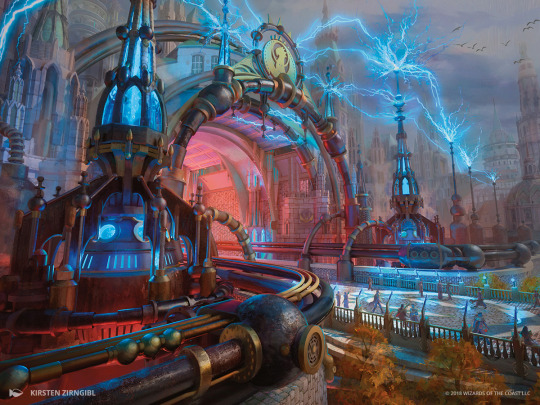
Ravnica is a ecumenopolis, a city-state that covers the whole planet. The city is governed by a guild council, each of whom are responsible for an aspect of the city’s physical and social infrastructure:
The Azorius Senate is responsible for running the courts and the legal system, and sometimes they run the police as well (although they have a jurisdictional dispute with the Boros Legion on that front).
House Dimir are couriers, messengers, journalists, private investigators, spies, assassins, thieves, and librarians, as well as the city’s clandestine intelligence service - if it deals with information in any way, the Dimir have a hand in it…or do they?
The Cult of Rakdos run the city’s entertainment, food service, retail, and labor recruitment (lots of shanghaing and press ganging goes on in Ravnica) - and they’re also a crazed juggalo bdsm blood cult who are responsible for keeping an ancient arch-demon entertained so he doesn’t try to destroy the city, again.
The Gruul Clans are an anarchist collective responsible for the planet’s wilderness areas, which they try to maximize by violent raids that tear down developed areas any chance they get - which also makes them Ravnica’s main demolition industry. The Boros Legion spends a lot of time defending built-up areas from Gruul rampages.
The Selesnya Conclave are a hippie nature cult commune who manage the city’s parks and other green spaces, as well as providing basic welfare services (food, “shelter,” clothing, etc.) to the city’s poor. They also use magic to do weird hivemind brainwashing in the name of harmony and unity, and they can raise giant Ent-Kaiju to defend the city in times of need.
The Orzhov Syndicate are a vampire banker mafia, and also one of the city’s biggest religions. They believe in debt on a spiritual level, and their religion fully embraces indulgences to their logical conclusion. The Orzhov preach that you can literally buy your way into heaven, and that debts to the (Catholic by way of Prosperity Gospel Evangelical) Church or its many front organizations and legitimate businesses will carry over into the next life; the Orzhov practice debt slavery on both living people and ghosts. And lest you think it’s all a cover for profit-making, they can summon dark angels to conduct rituals, lead services, and make war on their enemies. Something above is answering their prayers…
My personal favorite is the Izzet League, an institute of mad scientists and engineers and elementalist wizards who combine science and magic to research, build, and maintain the city’s infrastructure (as well as funding all tech R&D and theoretical and experimental research in physics, chemistry, and engineering) - the power grid, water and sewer systems, heating and gas lines, as well as the city’s mass transit and transportation/freight system, are all powered by their steam and fire and lightning and Magitech gadgets and robots and cyborgs made out of a magic metal named mizzium. Yes, a lot of their devices explode, and yes their golems and robots and elementals have a tendency to go rogue, but that’s the price of progress!
The Golgari Swarm are a subterranean necromantic cabal who run the city’s waste disposal, burial services, and do the bulk of the agricultural production for Ravnica’s hungry masses. All of Ravnica’s citizens are entitled to a food dole provided by the Golgari’s fungi farms as a form of basic income. Just don’t think too hard about what went into the compost heaps or what your rations might be made of…
The Boros Legion is Ravnica’s main police and military, led by a literal host of warrior angels. Imagine the combination of a police force entirely made up of noir detectives and loose cannon Dirty Harry-esque cops and an army with flying fortresses led by fiery angels who are all deeply dramatic lesbians. True believers one and all, the Boros are here to mete out justice and divine wroth upon evildoers wherever they hide. If they had their way, the Orzhov would all be in prison along with the Gruul and the Rakdos, but the damn bureaucrats in the Azorius Senate keep trying them up in knots with paperwork.
The Simic Combine are responsible for the city’s environmental quality, ensuring biodiversity and sustainability in a global metropolis; they are also the city’s universal health care providers. All Ravnicans have access to free health care, as long as they consent to the Combine’s biomantic research. See, the Simic are the other group of mad scientists/mages in the city, except they went into genetics, environmental science, and (marine) biology and they believe in individual and societal evolution through the use of augmentation, cloning, and splicing. After all, why stop at curing someone’s respiratory illness when you could also give them gills? Or giant crab claws? Or tentacles?
I love the world-building and the attention to urban systems and infrastructure in Ravnica. More than most, they’ve thought about what urban life needs to function and made it magical.
#fantasy genre#urban fantasy#revolutionary imagination#genre fiction#urbanism#alternate history#city-states#guilds#ravnica#mtg#arcane#magitech
93 notes
·
View notes
Text
I've seen a few different threads around over the last few days debating whether people are 'allowed'/whether they should keep reimagining the myth of Persephone's abduction, and it feels to me like these discussions are actually two different conversations that have been flattened into one. I am staunchly in favour of retellings and reimaginings. I may not always agree with what an adaptation etc. does, but ultimately I'm always enthusiastic about people engaging creatively with myths, legends and folklore. Not everyone feels this way, and a lot of people are fiercely protective over what they consider the "correct" version of a myth. Hence the common resurgence of debates like the one about reimagining the Persephone myth.
Thing is, you can be both enthusiastic and critical about retellings – indeed, sometimes you need to be critical of them. The Rape of Persephone is a really good example of this, actually. The version most children learn goes like this: Persephone is abducted because Hades has fallen in love with her; Demeter holds the fate of the human race hostage against Zeus until he agrees to send Hermes down to save Persephone from Hades; Persephone eats six pomegranate seeds, so she has to remain in the underworld for six months of the year. What's crucial here is that this popular, sanitised version reframes Persephone's plight as her fault. She is so beautiful that Hades can't resist her. She eats the seeds willingly. It's an ancient myth given a new facet, but it's a facet cut by modern misogyny* – and that's definitely something to criticise. In the Homeric hymn to Demeter, the oldest extant written record of the tale, Hades feeds Persephone the seed by force and deliberately conceals this act from Zeus. He knows it's wrong, and the audience knew it was wrong, and there isn't a reason why making the myth child-friendly had to involve cutting this part out.
Does that mean nobody should ever retell the myth? No! But we should definitely ask why this version has become so popular, and consider what it says about our contemporary society.
*Ancient Greek society was highly misogynistic too, make no mistake. Yet (male!) classical writers didn't pull their punches when it came to showing Persephone's distress and the horror of her situation.
100 notes
·
View notes
Text
Is Bill Skarsgård only in remakes ?
This will be long. Really long.
After the relase of The crow 2024 , a lot of comments have surfaced saying that Bill only do remakes and nothing else. That he is where he is because of nepotism and that he only plays dark characters.
How about we review his trayectory according to his imdb page ? Lets see his eldest credit, how long it took him to position himself in america ( his big break) how many remakes has he done and what genres he explored.
If we go all the way down we will see that his career started in Sweden. His first credit come from the 2000's movie Järngänget where he worked with his brother Alex. Bill was 9 years old aprox. Since then he worked ocationally until his teenage years ,when he took the job more seriously , in consecuense he started to gain fame for himself in scandinavia, even nominations for some roles. Like with simple simon (I rymden finns inga känslor)
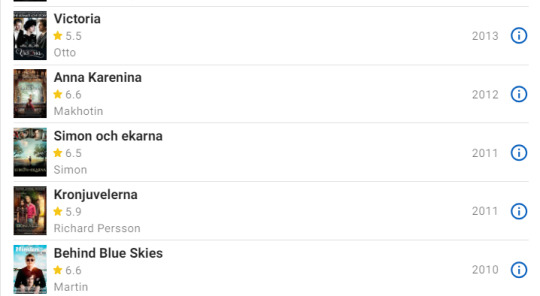
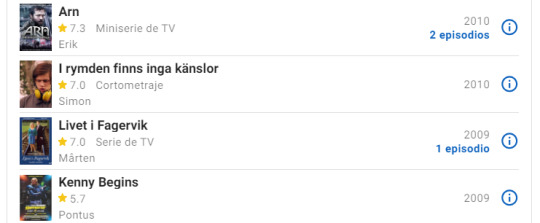
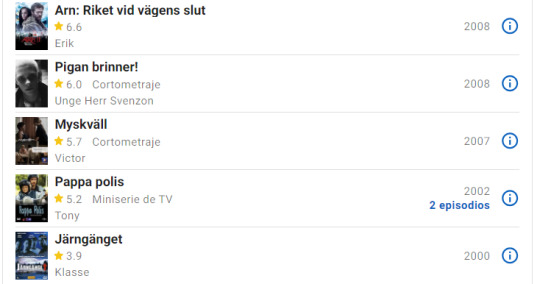
In The crown jewels ( Kronjuvelna) we have Alicia Vikander and Bill skarsgard sharing the screen, both are swedish, and later both participated in the 2012 american adaptation of Anna Karenina (Leon tolstoi novel) sadly for Bill ,being Stellan Skarsgård son did not help his small role from being cut out of the movie. Alicia is the one who gets her big break from this by playing Kitty.
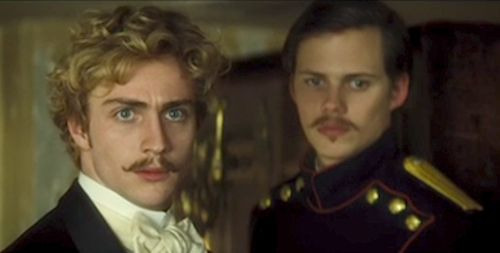
Role: Captain Makhotin
But things don't end there, he may have not done it in american movies yet but he did land the role of the vampire / upir Roman Godfrey in Hemlock Grove (series), another adaptation from a book with the same name, on netflix ( small streaming plataform in the early 2010's) he did a total of 3 seasons.
In 2016 he gets another small role but in the Divergent series , in 2017 Atomic blond ( as Merkel). Now it's in 2017 at 27 years old when his first remake and big break comes: IT (pennywise) . But first lest define briefly what is a remake?
wikipedia says: A remake is a film, television series, video game, song or similar form of entertainment that is based upon and retells the story of an earlier production in the same medium—e.g., a "new version of an existing film".A remake tells the same story as the original but uses a different set of casts, and may use actors from the original, alter the theme, or change the flow and setting of the story.
A similar but not synonymous term is reimagining, which indicates a greater discrepancy between, for example, a movie and the movie it is based on
It is a novel by stephen king ,the first adaptation was for tv miniseries of 2 episodes in 1990 with Tim curry as Pennywise. In 2017 another adaptation is released and here is where we open the main debate: The 2017 movie was a remake or another adaptation? I guess is matter of perspective, while is true that the first popular reference we have about the subject is the 90'series , the new production based his storyline and character design in the book... So if you are more familiar with the book you'll call it an adaptation but if you have never read it then it'll be a remake "with differences".
The contrast beetween both vertions of IT is too big to consider the latter ( 2017) a re-do/ remake of the miniseries. You can notice that just by the approach Bill and Tim took on Pennywise. Tim's version was more human, a psycopath like in John Wayne Gacy-esque type. Bill's was a monster, not one trace of humanity in his character, it was out of this world and enjoyed playin/ torturing its meals cause it tasted better basically.
My own take is that IT CHAPTER 1 AND 2 are not remakes of It (1990). But due to pop culture they are considered as such.
Between the IT- MANIA he was in the following productions: Battlecreek , deadpool 2 ( short role), Villians, Assasination nation and Castle rock ( series). He also participated in shortfilms like: A stone Appears, Alteration and Do you like the taste of beer?
Is in castle rock where he plays another creepy role as the kid .For battle creek he is an artistic vulnerable depressed dude. In assassination he plays a misogynistic teen asshole. And with Villains we see him explore his comic side.
This is what I would like to call the transition period, besides Deadpool and castle rock, all the projects previously mentioned are in some way small projects , that he for some reason decided to take on ,maybe for scheduling reasons cause by the end of 2019 IT CHAPTER 2 was premiering.
2020- 2022
The pandemic hit and changed things, he losses momentum. The whole industry was shaken actually. Movies that were supposed to be released in cinemas went to streaming, projects were cancelled and others got delayed.
For example Bill was set to work in The northman with his brother Alex again , he was already in Eggers radar, but due covid he had to drop out: Here
He left that project because something else was scheduled: Clark. (netflix nordic) a series he helped to produce too.
From this time we got Nine Days, The devil all the time (one of his best works and one of his most underrated film. He plays Willard a traumatized ww2 veteran), Soulmates (a series - one ep. He plays a uptight gay man who finds love while vacationing in Mexico), Naked Singularity ( he's an lawyer with adhd and a weird obsesion with ears) , Eternals ( KRO) ,Barbarian (horror movie where he is just a good guy who's in the wrong place at the wrong time )
By this time he was still under the shadow of " pennywise" but he had built a reputation for himself, he was a good actor before the critic and public that followed his work. Not as popular as Alex ,for example , but he was known by now.
2023 -24
After the pandemic we enter the period I woud like to call : COMEBACK.
The projects we find here are more "commercial" because these are action films, which is not bad , it was about time, most of his films usually dont get too much of exposure or are small projects. If someone said Bill Skarsgård automatically people thought in the clown 🤡 and not in Kro, mickey, willard or Clark for example. So we see here some sort of rebrandig he's now a killing machine, a cartoonish villain and anti hero.
John wick 4.
This offer came to him thanks to a previous work he did in Atomic blonde. Chad stahlesky let him choose what character play ( here) , and he went for the bad guy. A cartonish kinda old school villain , with funny accent and great suits: The marquis de Gramont.
Now, a very common observation people do is that roles are offered to him and his just takes them. That he is like a passive actor who only plays what he's tell to play, but since Pennywise he has always talked about how much he gets involved in the making of a character. The marquis was not the exception. That annoying accent was , for example, his idea. here more about it
This participation was a breath of fresh air, and brought new eyes to him. New fans arrived, people saw more of his work and he stepped a bit away from the IT shadow. Later was confirmmed that his next project would be BOY KILLS WORLD a pure gory action film with some comedic touch for which Bill prepared hard.
Moritz Mohr: Bill is a terrific actor. The only thing we weren't sure at that point was, "Can he deliver on the action?" He basically just promised, "No, I'm gonna put in the work, I'm gonna get ripped, I'm gonna train, and I'm going to learn the choreography." Which is a huge commitment, because it's just months and months of training and rehearsing, and I'm so glad that he did it. He overdelivered sometimes, he was really committed to it, and I'm very lucky that he was, because I think the results are just phenomenal.
In BKW we see Bill has good comedic timing, as if that wasn't clear with previous projects like Villains , but here he delivers comedy without talking. Conclusion : he can also be funny.
So far we are very into 2024 and NO MORE REMAKES in sight for him besides IT and we have talked about how many movies- series ? Almost 20 since his first big job in America (Hemlock G.)
The recent fame of " remake actor " comes from the next two jobs he landed. The crow 🐦⬛ and Nosferatu. 🦇
The crow 🐦⬛: How Bill got the script on his hands? it was given to him because he is known for remakes, because of his lastname , because no one else wanted to do it ? Luckily for us , Empire magazine tell us the following:
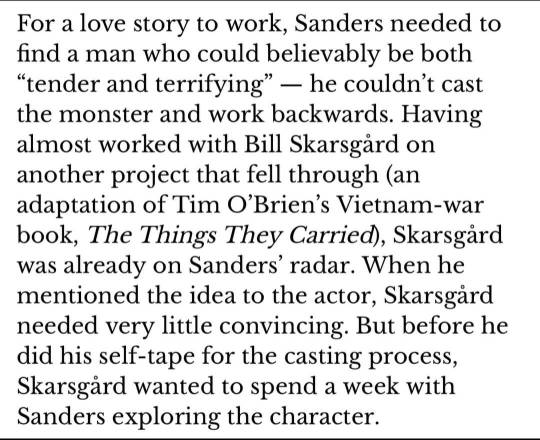
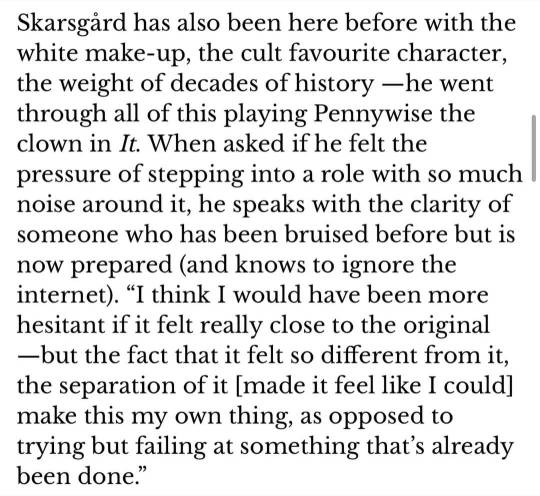
The project was conceived to be a separate work from the 1994 movie the crow, the source of inspiration was THE CROW graphic novel of J.O Barr. Again, by this and more interviews around we see Bill as an actor who played and active part in bringing a unique version of eric. From the physique ( something he kept from filming BKW) to the aura he's nothing like Brandon lee's Eric Draven.
The big differences between the 2024 and 1994 version, are confirmmed now after its release with heavy critics of people claiming it to be a "bad remake cause it looks nothing like the original " Here I ask rethorically , so is Bill a remakes actor or not?
Remakes are in full force lately, examples are whatever Disney has been doing lately, the ghostbusters, robocop , etc. Movies that go frame by frame , super close to their media source.
The same way Dune 2022 is not considered a remake of the 80's movie , The crow 2024 shouldn't be considered one either. Not even IT. Because, primarily, the source material is not the previous movie or series, but a book or a novel. So the best term to use is , I believe, adaptation or reimagining.
But what about Nosferatu?
I'm glad you asked random tumblr reader. I'm almost finishing and this is where I want to suggest that this upcoming film is actually the first remake Bill Skarsgård has done.
Robert Eggers ( director of this new remake ) shares with anOther magazine, that he planned to film Nosferatu after The witch , that's how he met Bill , who was 25 by then ( at 25-26 he was also auditioning for IT) . Eggers recalls Bill's audition being excellent for Hutter . Unfortunatelly the project fell but they stayed in contact and planned to one day work together , Bill was later set to work in the northman , we already know how that played out.

As we see here Bill was the one trying to get the opportunity to work with the director, having another role in mind ,until Eggers proposses to him the opportunity to be Count Orlok thanks to the work he did as Bob Gray in IT chapter 2.


Eggers knew about his capacities as an actor to embody darkness while having a youthful and pretty exterior that's why he tought of him as the right choice for the project.
Once again we read an interview that highlights the joint work of the director and Bill on the character, from the psyque to the make up. He was very proactive, long conversations, audio tapes, isolation, voice coach , etc. All of which finally paid off

Bill Skarsgård has proven his desire to become a versatile actor, just by reading his imdb page we see a variety of works forming his resumee , but he has a particular preference for dark, scary , creepy roles. In this review since the Hemlock grove days he has played a total of 7 obscure characters ( from antagonist to conflicted ones). This alone is not bad, and they aren't that many either. Every actor have a genre they prefer , characters they feell more pulled to work with. Bill is a goth king and I respect that.
His career itself also proves to be the result of organic growth, although he was lucky to be part of one of the most successful and respected acting families in sweden , that alone couldn't have granted him is current success. He started in America with a small show that most people haven't heard of till this day, and was in his late 20's when he got his first big opportunity. He sent emails, he sent tapes, he auditioned, he gave his word promising to deliver a good job. He works his ass off for what he wants. He doesn't seem to be the classic textbook nepobaby.
That's why I think that considering him just a remake actor is unfair and narrow minded. Said statement reduces a still growing career full of exploration to just opportunistics cashagrab roles ... and this guy is far from being that. Also because not everything that shares a tittle or character's names is a remake. It dependes on what the creators are having in mind for the new work.
That's so , after reading the most recent AnOther magazine interview , that I came to the conclusionI expressed before: Nosferatu is his first remake . Both Bill and Robert Eggers have always in mind the 1922 movie as source of reference and they worked Count Orlok and the story around that.
He's still a rising star, and has a lot more ahead, im confident the general public will see what directors and fans have seen in him: A good mfucking actor who wants to leave a mark but in his own terms. Taking risks , exploring, chosing roles that may not look right for him but always improving himself to expand his potential and keep taking on new and more promising challenges.
Its intersting how everything connects , IT oppened the door of Nosferatu. After all the issues that came to him at the right time , and I can bet my left arm he will deliver !
*Im sorry if this was too long it took me 2 days finishing it ,i'll go to sleep now .
#bill skarsgård#bill skarsgard#billskarsgard#the crow 2024#boy kills world#nosferatu#hemlock grove#IT#pennywise#marquis de gramont
30 notes
·
View notes
Note
I just thought of the comedy potential in a Superkids summer camp.
I imagine the other members of the Justice League are super impressed with the robins and want their children to have basic training so they have a better chance at surviving. So they ask Batman about it. He says no (probably because the idea that he can train kids to survive is a bit triggering to him), so they ask Nightwing about it and he's delighted to organize with his siblings.
This would be for the youngest of heros/children of heros so think Damian and younger. Except for Damian all the Bat kids are camp counselor. Some rapid fire thoughts:
Dick and Barbara are the main camp counselors. They sometimes have to leave camp because duty calls (I mean, all of them have to at some point). Dick would teach the kids how to properly fall, a lot of knots and some fun beginners acrobatics. The kids love him because he's great at retelling stories at the bonfire. All of the campers are trying to piece together his love life because it sounds chaotic.
Barbara teaches the kids basic tech skills, how to properly use comms and how to spot cameras and mics. She and Jason may not be as outwardly protective as Dick but they understand the danger of being a hero's kid (Gordon counts as a hero to me). The kids think she's fun because she's always up to mess with the boys, but she's also the one that talks about the serious stuff. When Dick gave them the talk about the importance of their safety at first they didn't take him seriously. It's Barbara who (with tact of course) makes them understand they're not invulnerable, and everyone needs training.
Cass might get overwhelmed at times because communication doesn't come easy to her and kids are particularly prone to misunderstanding things (sometimes on purpose). She still enjoys it tho, and considers it good practice (Barbara is really proud of her). She teaches hand to hand combat and hr marshmallows are always perfect.
Jason is conflicted. I think he would have a lot of fun pulling pranks and teaching the kids how to aim with different weapons (non lethal of course), but the premise of "these kids have a target on their back" hits a bit close to home. He's definitely broken down about it at some point. He hides it well and tells amazing fictional bonfire stories (that aren't the plot of classical books reimagined)
Steph is the local expert in disguises and teaches the kids different accents and how to change body language. She's also extremely chaotic and helps the kids pull pranks on the rest of the counselors. The kids love her impressions and she provides voices for Dicks stories in exchange for marshmallows.
Tim is having a lot of fun and I imagine him and Dick are reminiscing about Young Justice/Teen Titans a lot now that they're surrounded by kids. He teaches the kids how to be stealthy and probably introduces them to the art of "always having a backup plan for your back up plans". He corrects Dicks inaccuracies when his retelling his own battles (and provides evidence with Barbs). He would also be amazing at telling horror stories.
Duke would be the one helping the kids find creative uses for their powers. Since they're still young a lot of them are still figuring it out. He also helps non metas to spot the weaknesses in superpowers. Also he, Jason and Steph definitely give the kids the ACAB talk (Tim offers to distract Dick and Barbara). He makes visual aids for bonfire stories (sometimes he makes Dick look derpy because that's how siblings work).
Damian hates the whole idea at first. Sure, he gets to spend time with John but he could have done that without a bunch of bumbling idiots around. And half of those are not even his siblings! He considers it beneath him, he doesn't need to learn what he knew at five. He starts helping the other kids out because "he just can't stand to watch such incompetence". The kids start going to him for advice and at first he's very annoyed but eventually he realizes that they're looking at him as some sort of camo leader. Then he gets really flustered about it (especially when some of them start calling him friend). Dick and Tim high five behind his back, it was the plan all along.
(Damm this got long sorry. I would love to hear your ideas on possible interactions or other things the bat kids could teach the kids. I really don't know much about the younger gen)
I don't know much about the younger generation as well :( I really like this idea, though! And you're absolutely fine. This ask wasn't that long and was super enjoyable ^^
There's a ton of cute ideas that you've mentioned with the batkids and campers. It kind of got away from me, but I started to wonder about them making camp an annual event.
They could extend the camp out to people who have powers in general instead of just heroes kids. The camp would be disguised (even from some parents who don't know their kid is trying to be a vigilante or has powers). It's a great idea to give the kids survival techniques, connections, training, etc. The fact that it's over the summer also helps so that the kids can focus on school during the school year.
The camp is funded and slightly looked over by the JL, but it's mainly headed by the batkids. Some of their hero friends also help out over the summer if they want to and can.
Eventually, they start to have organization for what's being taught. They have many many classes taught by different heroes, vigilantes, anti-heroes, trusted contacts, etc. They want the kids to have fun, but be safe. Here are some of their classes:
First Aid/Medical Help - All campers are required to have some sort of first aid class on their schedule. They can test out of the lower levels, but most end up repeating a class. It's been 10 or so months since they last learned the material. The camp is certified to allow campers to get a CPR certificate if they complete this class.
Stealth - various levels on staying hidden in different scenarios, blending in, or getting away enough to hide
Disguises - This includes keeping and maintaining a secret identity
Hero Ethics - This class goes over various laws in place (regionally, nationally, and internationally), the impact of capes on the community level, etc.
Vigilante/Hero Arrests - Basically how heroes make arrests, how this holds up in a court of law, necessary steps, evidence gathering, etc.
Power Safety - how to safely experiment with your power, when to use it, how to use it, etc.
Fun with Powers - how to let loose a little, enjoy the moments, and be free with any powers. It also allows campers to feel more confident and reassured.
Water Fighting/Rescue - They use the lake to demonstrate how to help people, how to fight various villain types over water, and how to calm down panicked civilians in water. They also have classes geared towards teaching people to swim or row
Arts, Crafts, and Police Sketches - Usually for fun, but the higher levels help people with making quick witness sketches
Dance and Movement - teaching folks how to move their bodies in various ways, how to incorporate dance into they fighting, how to dance in general, and how different movements create different effects
Being Prepared - backup plans for the backup plans
The Downsides of Being a Hero - older campers are eligible to take this class so that they are aware of the consequences of this path. Once you're in it, it's hard to let go. They want people to make informed decisions (they aren't discouraging heroics. Rather, they are chatting about the ugly sides people don't usually talk about).
Life Essentials - cooking, cleaning, sewing, taxes, etc.
Survival - How to survive in all types of scenarios (rural, urban, in forests, deserts, etc.)
Night Classes - stuff they teach after it gets dark (navigating in little to no light, for instance)
There's probably more, but this seemed like a solid start. They have campfires, lots of free time to explore, trails to hike, those blow-up water things, plenty of games mixed around, treasure hunts, capture the flag nights, etc. They want the kids to be safe, have people they can turn to for advice, but to still be kids.
My response doesn't really focus on the batkids, but you can try to assign who teaches what, which friends get dragged into camp, how all the logistics are handled, who's playing music over the intercoms, fun pranks they do, and other stuff.
37 notes
·
View notes
Text
Addressing how Persephone is sexualized in Lore Olympus.
Soooo... here's the thing, I LOVE Lore Olympus. I love the art style, the magic, how it mixes greek mythology with the modernday and it's reimagine of the character's, that it's not afraid to deel with sierous issue and I relate with Persephone on a very personal level. I found the webtoon at a time when I really needed an escape from things happing in my life and Lore Olympus was there comfort and inspire me.
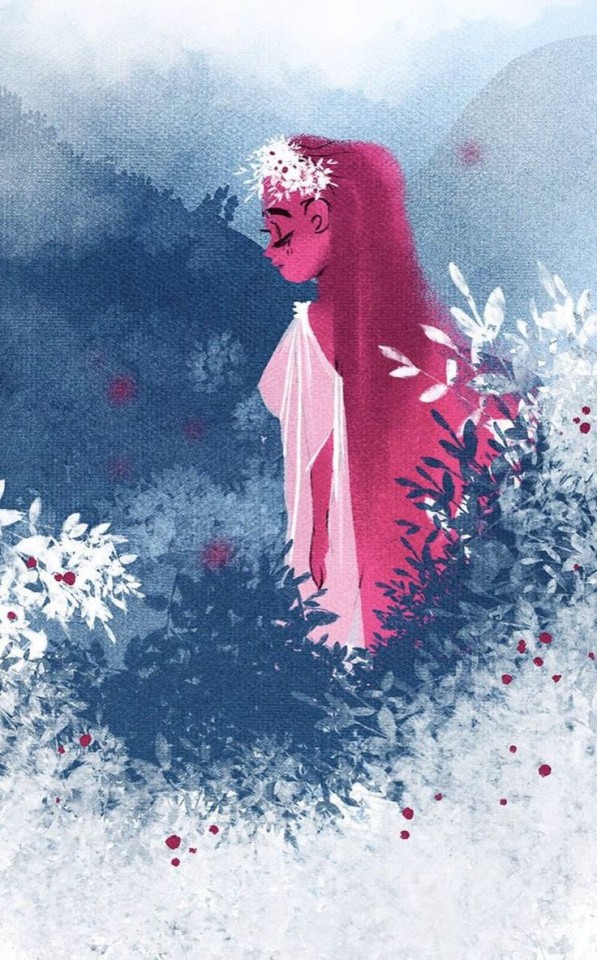
I have a lot of love for this webtoon, however... there's some problems I had with how Persephone was sexualized in the first season. There were moment's where she was viewed in a fetishized male gaze that was ... not great 😖 (case and point 👇)
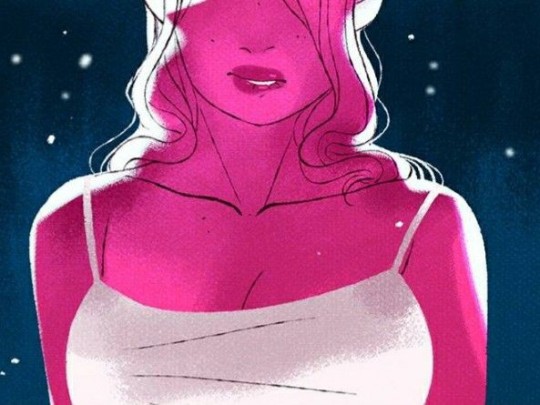
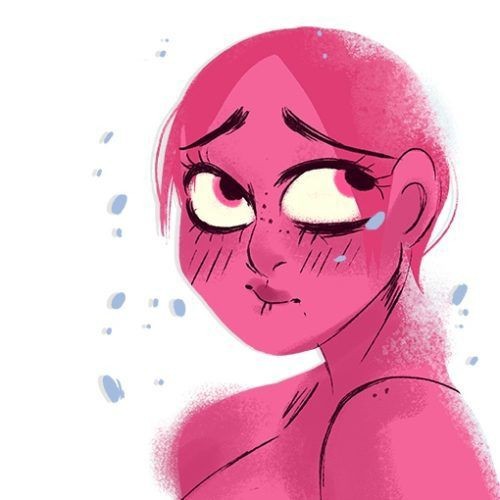
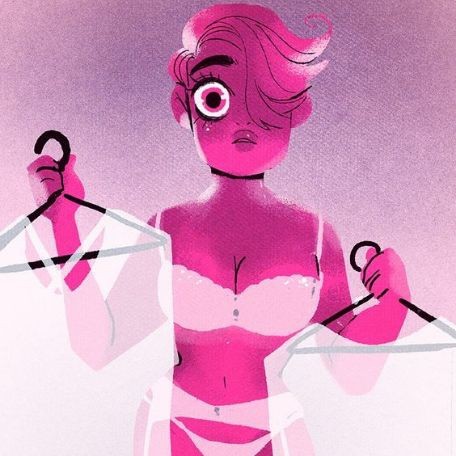
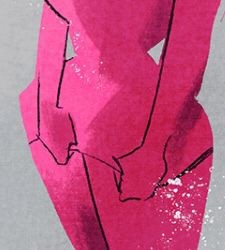
This portrayal unfortunately falls under the sexy baby trope and I found this very strange and out of place in a story that is suppose to a feminine retelling of greek mythology.
Now I dont mind that Persephone is sexualized since she is of age and it's a part of her character arc. Her story is about gaining agency after being sheltered her whole life and understanding her sexuality is a part of that. Her reclaiming of her trauma and sexuality is one of the reasons way a lot of people enjoy the webtoon and can relate with this verson of Persephone.
So why is she portrayed under the male gaze in a way that does not support the core of her character? It's especially worse when we are seeing Persephone through Hades eye's, witch doesn't help since the age gap is a controversial topic in the fandom and a lot people think that LO is pedophilia, and these moment's didint help the romance or Hades as a character.
And that sucks because as far a retelling of the Hades and Persephone myth goes, I acually like how most of there relationship is handled and the age gap dose not bother me as mush, mostly because I think that Hades is somewhat emotional stunted do to his trauma and that him and Persephone are at the same level intellectually, and a lot of there relationship is quite healthy albeit some what codependent. It definitely is not perfect and I do wish that the romance could have been handle defiantly at times, mostly with the framing and the language that they use in some scenes.
I've seen some people compare Lore Olympus to Twilight and Fifty Shades of Gray and even though there are some similarities ( both having a young woman discovering her sexuality and a immortal or rich boyfriend/ husband), but the core difference is that Hades is not abusive or possessive twords Persephone and treats her with respect.
Lucky with season 2 and 3 the gross male gaze moment's where mostly removed and we saw more of the female gaze, (not just because we got more shirtless Hades 🤭) but because of how Persephone is portrayed sexually. (case and point 👇)
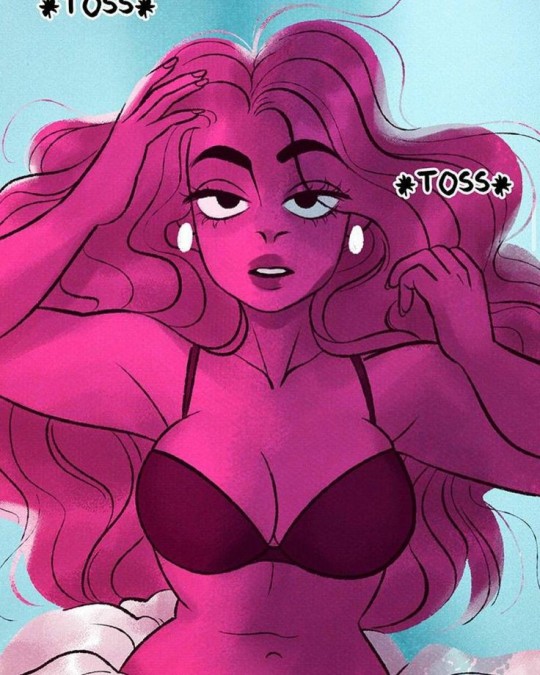
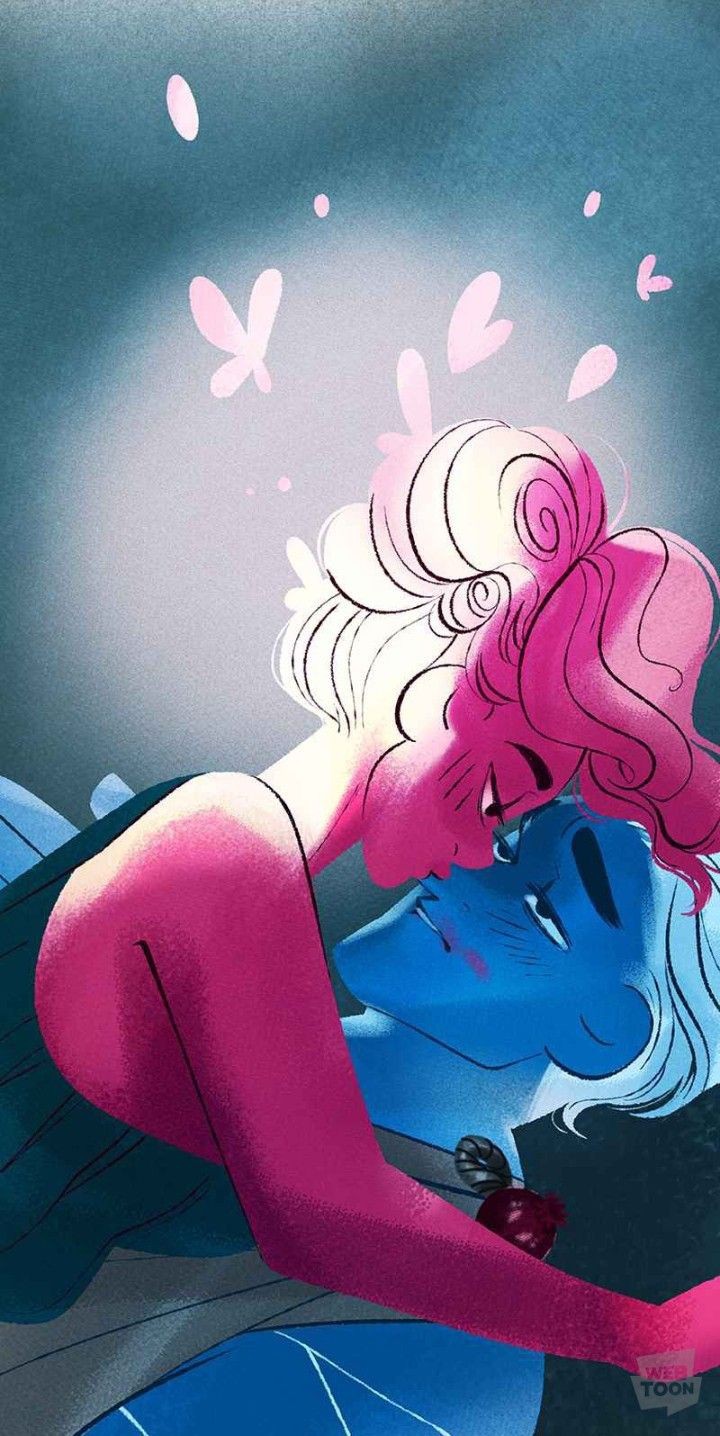
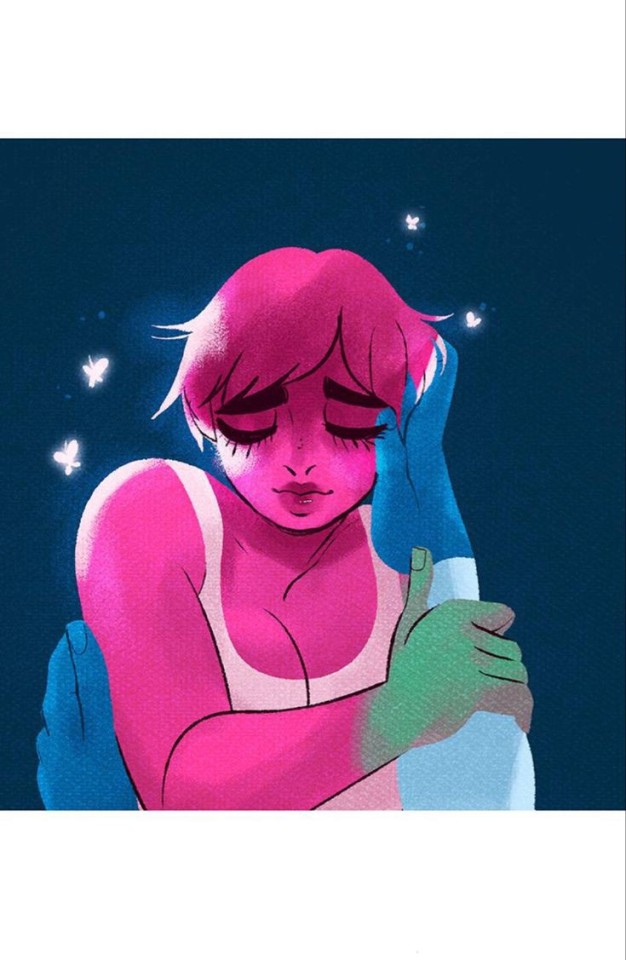
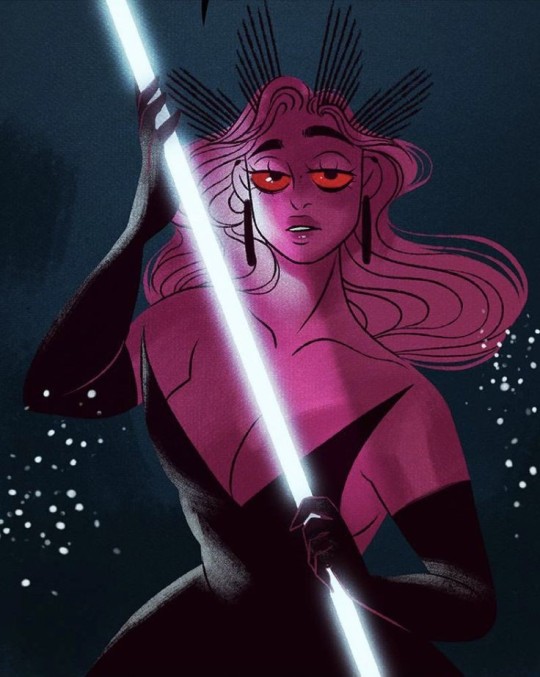
Persephone isn't fetishized like she is in season 1 instead she's shown as powerful and has agentsy over her own boby, the focus is more on the intimacy, connection and longing between her and Hades and when we do see Persephone trough Hades eye's she's viewed with tenderness and seen as a beautiful desirable women and not a sexy baby. Also it should be notice that after the ten year banishment Persephone is thirty year's old when she and Hades gets married and have sex for the first time.
This some what redeemed Lore Olympus for me and even though the webtoon it far from perfect there is nothing wrong enjoying and finding value in this story as long we view it with our brain's turnd on.
Just to be clear this not a anti Lore Olympus post, I am simply addressing one of the problematic aspects of the webtoon because I feel like we should acknowledge it's flaws while enjoying the story and characters.
#lore olympus webtoon#lore olympus#webtoon#Hades and Persephone#lore olympus criticism#the female gaze#lo persephone#lo criticism#rachel smythe#lo critical#lore olympus persephone
55 notes
·
View notes
Text
mordred through time (movies, tv shows, opera and musicals)
Part 4: From 2014 to 2017
Other Parts:
Part 1: From 1949 to 1981 -> here
Part 2: From 1982 to 2002 -> here
Part 3: From 2002 to 2010 -> here
Part 5: From 2018 to 2023
For this part I just wanted to talk a bit about sympathetic Mordred.
Through time we started to see a more sympathetic Mordred. I think the first iteration in audio/movies/tv was the the Blind Guardian's song in 1995. For the first time we have Mordred as a protagonist, mainly lamenting of regret, pain and lonliness. While I do not know why they decided to focus on Mordred, it is also notable that writing a more sympathetic Mordred was already happening in novels, around the same time. I used the arthurian list of novels I made so I might have missed any, but at this time we have 1956 "The Great Captains" by Henry Treece, "Sword at Sunset" by Sutcliff, "The Wicked Day" (the first novel focusing on Mordred as protagonist) by Mary Stewart, 1982 "The Idylls of the Queen" (Phyllis Ann Karr), 1983 "The Mists of Avalon" (Marion Zimmer Bradley), Persia Wolley's 1987 Guinevere trilogy, 1988 "The road to Avalon" by Joan Wolf and 1988 "The Book of Mordred" by Hanratty all depicting Mordred as a more round character, as someone the reader can feel sympathy too or even enjoy or relate to.
A slighty sympathetic but still villanous potrayal can then be found in 2001 ("The Mists of Avalon" miniseries) but we have to wait till 2008 ("Merlin", BBC) to have a tv Mordred who is actually shown trying to do the right thing (at least for a bit), and working with Arthur. I think this is more due to the fact that "Merlin" often tries to depict villains' origins and motivations than a real conscious attempt to redeem Mordred or make him less villanous.
Other following examples are the kid movie 2010 "Merlin and Arthur the Lion King" and the album 2014 "High Noon Over Camelot" that positions Mordred in a co-protagonist role and fully allows the listeners to empathyze with him. The Fate franchise (the introduction of Mordred should be around 2012 in the novels) continues on this trajectory, making Mordred a main sympathetic and beloved protagonist in many of the adaptations.
2014 High Noon Over Camelot album by The Mechanisms: The song I used is "Peacemaker". The album has multiple arthurian characters sung by different artists, and Mordred is interpreted by Ashes O'Reilly. This is also the first time we have an explicitly queer Mordred (outside of novels), as Mordred is a trans man in this retelling. The story is a Western reimagining of arthuriana, and another case of a sympathetic Mordred - this time Mordred is more overtly sympathetic and even reconcile with his father Arthur at the end.
2011 recording of Albeniz's "Merlin": Piotr Prochera plays Mordred. This is another recording (no dvd, this has been shared by Piotr Prochera acor himself on youtube) of the "Merlin" opera.
2015 recording of "Le Roi Arthus": This opera is probably my favorite arthurian opera. It was created by Ernest Chausson between 1886 and 1895 and it is sung in French. Mordred is a bass and a classic villain, here jealous of Lancelot and the attention Guinevere gives Lancelot. This 2015 version was a modernized edition, with the knights depicted as modern soldiers. Mordred here is played by Alexandre Duhamel.
2016 Rex, youtube webseries: This series is on Severe Chill Studios' Youtube channel, with 48 short episodes. The series is a vlog of arthurian characters living in modern times (no reincarnations, just reimaginings). It follows Rex (Arthur) a student who is dealing with his abusive family and the brothers Merlin and Lancelot. Moore (Mordred) is Arthur's spoiled and arrogant friend (played by Daniel O’Sullivan). He lets Rex crash at his place for a bit, and is often depicted insulting his mother and calling her slurs. If you decide to watch this just know the series has some pretty heavy themes (a part from domestic abuse it also touches on terminal illness). Youtube link.
2017 Fate/Apocrypha: This is one of the many anime adaptation of the Fate franchise. Mordred is voiced by Miyuki Sawashiro. The Fate franchise is massive and deals with numerous spin-offs or even alternative realities to tell the tales of wars/battles for the Holy Grail mainly fought by Servants who are personification of historical/legendary figures. Fate/Apocrypha is based on a series of novel and is an alternative timeline to the previous Fate/Stay Night anime and also the first time we have Mordred in the anime. Mordred is here a Servant, they are the cloned-son of Saber (Arthur/Arturia, who is a woman) and Morgana. Their story is massive so let me just say I am using they/them for Mordred because the Fate series is very ambigous regarding theri gender. They are born as the close of a woman (Saber) and often referred with female pronouns through the series, they hate being called "a girl", and also hate being called "a boy". While I do not think the series was making an effort to actually depict a non-binary character, I do believe Mordred can easily be read as one.
2017 King Arthur and the Knights of the Round Table: 2017 was a wild year for arthuriana but nothing was as wild as this movie. The movie follows the life of some arthurian characters' descendant living in Thailand. Morgana and Mordred (banished in arthurian times) ended up in space, working with aliens, and are now back to destroy the descendants. The movie is full over dramatic close up, Morgana turning into a mecha, fighting scenes and more. Interestingly, given how ridiculous the movie is, Mordred is depicted as a sympathetic (almost) villain. He is played by Russell Geoffrey Banks.
2017 King Arthur: Excalibur Rising: The scene I used in the video is right at the start, as the movie is set after Arthur's death. While Mordred might seem sympathetic there he is actually a pretty violent villain for the rest of the movie. The story is focused on Owain (Arthur's illegitimate son) trying to take back the crown from Mordred and Morgana. Here Mordred (played by Gavin Swift) is Arthur's incestuous son with Morgana.
2017 Legend, youtube webseries: A webseries you can watch on Tufts University Television's channel (link here). The series has 7 episodes and an epilogue and is set in a university. Each student is an arthurian character, with Mordred (Morty) as the overly joking, friendly guy who is hiding some deep hatred and jealousy towards Arthur. Unfortunately I do not remember if Mordred is Arthur's half-brother or just a friend. Mordred is played by Yuval Ben-Hayun. The story and production were pretty good, so I recommend it!
2017 Mordred La Revolte: I cheated a bit as this movie is the end of a long webseries. The series started in 2013 and run till 2018 with two season and can still be found here on youtube. The series was created by Tommy-Lee Baïk (who also played Mordred) and is in French. Unfortunately I cannot really tell how arthurian the series is, but the plot does not mention other arthurian characters. If I am not wrong, la Revolte is simply S2 turned into a movie.
2017 Fate/Grand Order The stage - Divine Realm of the Round Table: Camelot: Part of the Fate saga but in the Grand Order timeline, this is a stage adaptation of one of the events in the videogame Fate/Grand Order. In particular, it should be the same story shown in the later movie Camelot part 1 as the full title is Fate/Grand Order THE STAGE - Divine Realm of the Round Table: Camelot Replica; Agateram. I will explain more about it in the next part of this Mordred series. Chihiro Kai plays Mordred.
#mordred#mordred through time#fate grand order#camelot#king arthur#high noon over camelot#characters through time#merlin#merlin opera#webseries#mordred la revolte#french mordred#fate grand order movie#fate series#excalibur rising#rex#le roi arthus#opera#info#fate apocrypha#saber#Mordred through time
21 notes
·
View notes
Text
I’m sure I’ll add more on this later but as I think on House of Leaves (finished it, loved it, listened through all of Poe’s Haunted and loved that too) I think the conclusion I’ve come to (and this isn’t a wildly novel conclusion, but ah well) is that it is at its core fundamentally an exploration of grief, and specifically grief of the loss of a family member. This is especially obvious because… Mark Danielewski has literally said that it was inspired by the death of his father. Poe’s album as well. So like, this is no secret. And I think this is invoked in the very obvious way of the fact that a house that should feel like a home but instead feels unsafe, surreal, and literally larger and emptier on the inside than it naturally should be is a very clear metaphor for grappling with the loss of a parent, right? But I think it goes deeper than that… I think House of Leaves also spends a lot of time dwelling on the weird, impossible to untangle intricacies of trauma, childhood and generational trauma especially, mental illness, and genetics… the things you carry with you and the things that loom over you from your family, especially those deceased who you no longer have direct contact with, left only with this awareness weighing down upon you.
I think Chad and Daisy are pretty clearly functionally author inserts of Mark and Poe, right? And Will Navidson then is their father? Both are even filmmakers. But I also think that Zampanò himself is Mark as well… his middle initial is literally… But complicatedly I’m not saying that Chad is Zampanò, I don’t think HoL is straightforward like that, it’s more like that’s another embodiment of the grief. The child experiencing that, the adult retelling it, grappling with it, imagining and reimagining it, and I think I believe that Tom Navidson is functionally an author insert of Zampanò into The Navidson Record, functioning kind of like a guardian angel to his childhood self, this sort of stand-in hero character who sacrifices himself to protect the innocence and life of the child self. I think the slippage of “me” within that one line, where he refers to Tom in first person, alludes to this, as well as his emotional outburst over his chapter where he tries to write about the relationship between Will and Tom. And in the very back of the book, there’s the fragment of a typed page where Zampanò considers an ending where Chad and Daisy die instead, are killed by the house, with this much more pessimistic tone (similar to when he gets upset about writing about Tom and Will), than what’s shown in the published/Johnny’s version of The Navidson Record.
And would it complicate things too much to say I think Chad, Zampanò, and Johnny represent a sort of trinity of different stages of Mark’s life—the child experiencing it in real time, the young adult trying (and failing) to cope with it all, and the elder now looking back and engaging with it from an aged perspective. I think Johnny represents that crushing weight of this impending, unknown genetic fuckery, constantly feeling the weight of this figure who died long ago but who you know lives within you, and you’re trying to figure out what’s traumagenic, what’s just this completely unavoidable tumbling towards fate—his mother died severely psychotic in an institution, is this unavoidable? Can he escape this future? How much of what he deals with is her, her influence, her fault, and how much is caused by trauma inflicted upon him. I really don’t like the theory that his mother/Pelafina “was” Johnny all along or that Johnny never existed or that he was a stillborn baby like in the story and she’s functionally created a Johnny headmate. I think it’s sort of silly, like I can see some interesting merit in it (there’s clearly a bizarre Oedipal psychosexual complex going on between Pelafina and Johnny and her writing these detailed accounts of her basically stillborn son’s sexcapades is a pretty fascinating idea), but I’m more interested in a sort of backwards-reading of that theory where the end represents Johnny kind of embracing or succumbing to his mother’s identity, for better or worse, and the idea of this baby in critical condition that maybe just maybe had a slim chance for life but dying the moment his mother asks him to revealing instead his relationship to her, the helplessness of those genetics and the control and power she exerts over him even in death. When Shilo Wallace says “You, I've mistaken for destiny / but the truth is my legacy is not up to my genes” at the end of Repo! the Genetic Opera, House of Leaves says… terrifyingly… what if it is? What if your genetics are your destiny? And then you lose that genetic lineage, it becomes just story, infamy, legend, but you’re there and alive and trying to grapple with it?
I kinda like the theory that Johnny rewrote the end of The Navidson Record to have a happy ending, or maybe Zampanò did. I think they both desperately want the story to have a happier ending. And honestly, I love the ending of The Navidson Record as published by Johnny. Though maybe cliché on paper I love the idea that there is a hopeful answer to all that emptiness and fear and a way to silence those endless inexplicable winding hallways and the answer is to replace that emptiness with genuine love. Like, to overcome that fear and embrace the ones you’ve loved for all that they are and that this love can fix all of that… It can make all of the fear and uncertainty of the empty, insurmountable, nightmare house literally dissolve... I think the end of Poe’s album (“If You Were Here”) speaks to that too.
Uh there’s obviously way more to it than that. House of Leaves is a lot of things. Duh. But I do think right now my primary takeaway is just how informed it is by the crushing helpless grief of the death of an immediate family member with which you have an extremely tenuous or strained relationship and the weight of family history.
#sorry for repo reference in a hol dissertation it’s just the best example I could think of for like a thematic counterargument 😭😭😭#oh would also add Yggdrasil = tree = family trees#house of leaves#I was scared to tag this cuz ik people feel strongly abt their theories but here I guess
27 notes
·
View notes
Text
Classics Online - Rant Collection
Being active in spaces focused around Classics and the Classical World online can be so rewarding. However, as with any online space, misinformation abounds.
As someone who is fortunate enough to be studying Classics at an institution which is world-renowned for its Classics course, I am, quite often, left more than moderately frustrated at some of what I see. And as someone who's currently writing a retelling, I come across a great deal of this misinformation every. single. day.
This is part of why I am even writing my retelling in the first place - to try and show that retellings can include some basic research and still be an entertaining story. In a day where access to online resources such as Perseus is free and easy, there is NO reason why retellings (not reimaginings, those are a slightly different kettle of fish) should still be relying on entirely anachronistic ideas, social structures, and characterisations to tell their stories.
In the case of online creators, these retellings are often used, alongside some questionable (but popular!) translations, as 'sources' for a certain view. Of course, everybody is entitled to an opinion, however everybody is also entitled to having the best chance at having the knowledge possible to form such opinions. Such knowledge is SO important for critical discussion of a piece of literature, ancient or modern, and the themes within.
And WE have a duty, as people who create any form of content online, to ensure that the information we are providing, even where it is an opinion, is either informed, or signposts clearly to people were they can access to source material to form their own informed opinion. Echochambers of half-remembered Ancient Greece 101 courses, or the book that's managed to use the most buzzwords to be marketed widely, do NOBODY any favours.
With that, here is a collection of my rants, as a classicist, on things I see on places such as ClassicsTok and BookTok, in retellings, Twitter (X), Instagram, and on here.
Please enjoy!
#academia#archaeology#literature#booklr#greek mythology#greek myth retellings#greek myth#ancient greece#ancient greek mythology#hades#persephone#apollo#achilles#patroclus#patrochilles#the iliad#homer's iliad#trojan war#tagamemnon
24 notes
·
View notes
Text
Author's notes about the Tanza and Auren fragment, because I keep having too many thoughts about it.
It's a good thing Auren started watching the movie only after his fictional self escaped from the rebels, because reliving his capture and near-execution might actually have been traumatizing.
He also missed out on the trauma of seeing fictional versions of his dead family and friends, who got much less flattering portrayals.
Tanza's desperation to stop the movie before Auren figures out what it's about is partially out of concern for his emotional health, but also out of sheer embarrassment at the idea that he's going to find out this exists (and maybe find out about her embarrassing tweenage obsession with this story).
(I can't believe I got the actor's name wrong for the first half of the story. I've gone back to fix it.)
(Also, if anyone thought this universe had good worldbuilding, I have fooled you all, because writing this I wasn't sure if tephans had chairs. The original story mentions an office chair, dining chairs, and folding chairs, but nothing about the seating in a living area. This scene gave me a minor crisis about this.)
Not only was the film a sensation that made its lead actor a star--he also became a Colin-Firth-in-Pride-and-Prejudice level heartthrob. (Which makes the real Auren a bit of a letdown to a lot of female tephans.) Tanza will never tell him about that.
Tanza was interested in the story because of its romanticized drama and the focus on the historical period. She did not have a crush like other girls. (If she did, it was toward the idea of this noble, tragic hero, not toward the actor.)
If there was a level of attraction toward the fictional Auren, it might be my window into imagining her romance with the real one. I can see Auren being attracted to Tanza (and in the original story there are two moments specifically where he's acting like a man in love), but I've had a harder time imagining Tanza developing romantic feelings for him. But there's something sweet in imagining this abandoned little girl (with her prickly outer shell hiding a vulnerable soul) falling a little bit in love with the story of the noble hero, never imagining that she'd grow up and find out the real man is so much better and in love with her. (There's also something weird about it, so it might be better not to go that way).
At some point, Auren is going to meet Corphan Holbrith at one of those political events/charity fundraisers he always has to attend. Holbrith is going to mention that he's overjoyed that the real Auren was found, because if the real prince hadn't shown up, Holbrith was half-afraid people would put "Prince Auren" on his own tomb.
(The two of them get along very well. Tanza just about dies from how surreal this moment is.)
The premise of the Prince Auren story has always been that there's been an Anastasia-style legend surrounding Prince Auren's survival. But now I'm sad that I didn't go full Anastasia, and make Auren discover that they made an animated musical about his alternate self.
The only reason I'm not immediately making a sequel about this premise is that I'm not sure Arateph has animation or musicals in the way that we know them (it might go a few steps too far in making them like humans).
There definitely is some kind of musical storytelling format (tephans have several strong musical traditions across their various regional cultures), and there's definitely at least one retelling of Prince Auren's imagined history in that format.
If we imagine the Prince Auren story works like the Anastasia story in our world, then there's a pretty good chance that Auren's survival story has become almost its own fairy tale, with lots of different reimaginings and retellings. Which makes it awkward after the real Prince Auren shows up. Can we keep telling versions of this story/putting on these beloved stage plays, etc.? Is it a fairy tale that has become public cultural property, or history that we need to stop circulating now that it's fully debunked?
12 notes
·
View notes
Text
It is so strange how, when it comes to French movies, Snow-White was adapted/re-adapted four different times... and each time it is about sex. No matter if they are live-action or animated, a retelling of the proper tale or its "sequel", serious or parodic, its always about sex.
"Blanche comme neige": Snow-White's story becomes a girl's sexual awakening into a femme fatale woman.
"Miroir mon amour": Snow-White brings her prince and his parents to her own parents to settle the wedding, and we get into some sort of perverse, psychanalytic, Freudian/Jungian/Bettelheim reading of the various relationships of the characters of the fairytale as a sexual tragedy.
"Elle voit des nains partout": A "fractured fairytale" comedy with Snow-White's tale as the loose plot connecting the various Monty Python-like gags... And quite a handful of sex jokes since in this version Snow-White is a lovable pansexual nymphomaniac.
"Blance-Neige la suite": An animated parody of Disney-like fairytales posing itself as a sequel to the story of Snow-White... and a sex comedy meant for a mature and warned audience.
That's... that's like some sort of thing with the French cinema. It is impossible to get a Snow-White adaptation, and not have it sexual in some way apparently.
Heck, our adaptation of DONKEY SKIN is less sexual than the Snow-White adaptations... IT IS BASICALLY VIRGINAL COMPARED TO THEM!
[Though funnily enough, out of all those movies, it is the most sexual one that has Snow-White being sexless. "Blanche-Neige la suite", which is the most openly sexual of all the four pieces, the most NSFW of the four movies... is also the only one where Snow-White is actually basically her Disney self through and through and not depicted as a sexual character in any way. In fact, while all the other movies go from the irreverent to the perverse reimagining of the character, "Blanche-Neige la suite", THE big sex fairytale comedy of screen in France, has the most... "decent", I will dare say, depiction of Snow-White, to the point she is the ONLY character in the movie that does not have sex or any sexual activity from the beginning to the end. Like... yeah, the most pleasant and pure and respectful depiction of Snow-White - well, Disney's Snow-White to be precise - in French cinema is... her appearance within a movie that is "Shrek, but what if it was an orgy?"]
#french things#french movies#snow-white#snow white#fairytale movies#sex in fairytales#french cinema#fairytale cinema#snow white adaptations#mature fairytales#french movies are WEIRD I'll tell you that
30 notes
·
View notes
Text
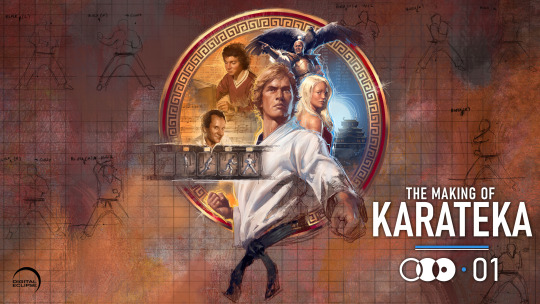
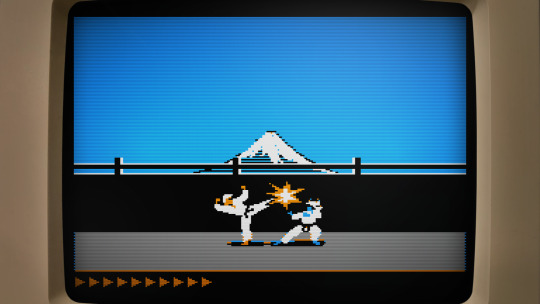
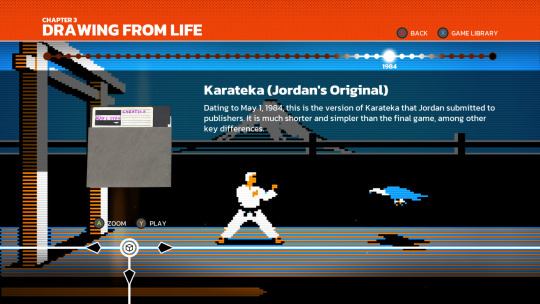


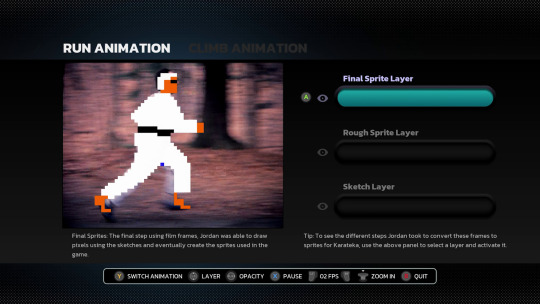

I never played Karateka in the 80s, but as a big fan of Prince of Persia and Jordan Mechner's journals, I was stoked to hear that an interactive documentary about Jordan's prototypical cinematic platformer was in the works by Digital Eclipse.
Released this week, The Making of Karateka on the surface looks like any other game you buy through Steam ($20, Windows-only), GOG, or whichever favorite store or console you prefer (available also for Xbox, PS4/5, Switch). Once the thing loads though, you really get 3 things: a documentary, the original Karateka, and a new remaster.
The documentary part is an audio-visual slideshow retelling Jordan's development story starting with his teenage years pitching his earlier title Deathbounce to the publishing house Brøderbund. It's an interesting look into the iterative process, seen through correspondence letters, journal entries, and many playable builds at various stages of completion. After we reach the eventual rejection of that title, Jordan comes back with a prototype of a visual-narrative experience unseen on home computers. We get to follow Karateka's full life cycle from pre- to post-production, ending with the conception of its sequel (which eventually turned into Prince of Persia). It's a real treasure trove! Fellow pixel artists will appreciate the many graph-paper sketches and interactive overlays of final game sprites compared to rotoscoped outlines and filmed footage. There are also video segments, from a comprehensive breakdown of the music to interviews with other developers reflecting on the impact Jordan's games had on their careers. You'll even encounter a fan letter signed by the one and only "John Romero, Disciple of the Great Jordan and worshipper of the Magnificent Mechner!" (I kid you not, you can't make this stuff up).
Perhaps just as crucial for an interactive documentary like this, you can launch any of the floppy disks in the emulator, trying out various iterations and ports of Karateka.
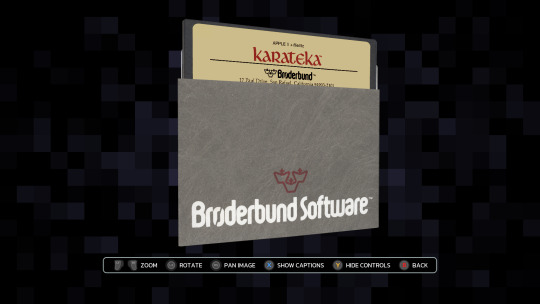
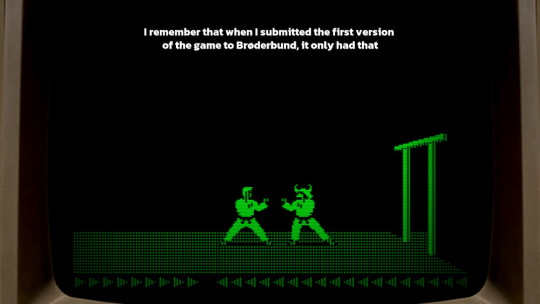
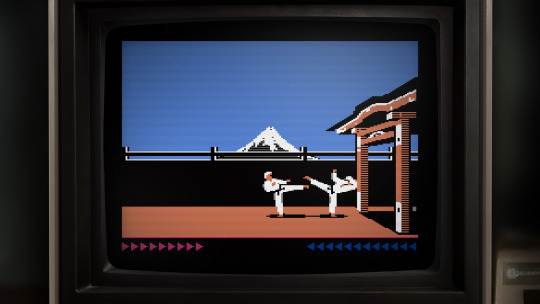
The emulation is fantastic and lets you fiddle with display settings (monochrome or color display, scanlines, pixel perfect or zoomed) as well as enhance the frame rate. You can even rewind the many deaths you will face if you've never played the game before (like me). If you spend some more time obsessing over the weird artifacts of the Apple II hi-res graphics, you might even go down the rabbit hole of realizing that on the Apple II you didn't really paint colors as much as you used different monochrome dithering patterns that the graphics display would then turn into 4 different hues. A fascinating learning experience if you include some of your own research online!
youtube
Add to this the Commodore 64 and the Atari 8-bit versions to compare how the graphics got adapted across the earlier ports and you have a nice way to relieve the mid-80s with a bit of help from modern emulation (I did beat the C64 version without rewinding though!). I'd love to see more art from the other remakes, especially the 16-bit Atari ST port, but I understand their decision to omit playable versions of those due to the lower quality on the gameplay side of the translations.
This brings us to the final part of the package, the modern remaster. Unlike the 2012 complete reimagining of the game (with 3D graphics and all), Digital Eclipse approached the remake as the ultimate port of the original to an imaginary system along the lines of a 90s VGA PC.

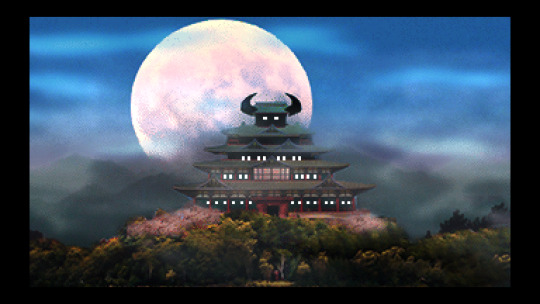
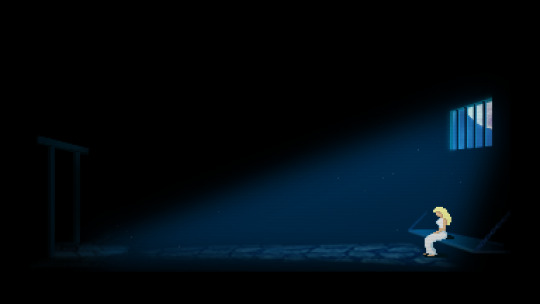
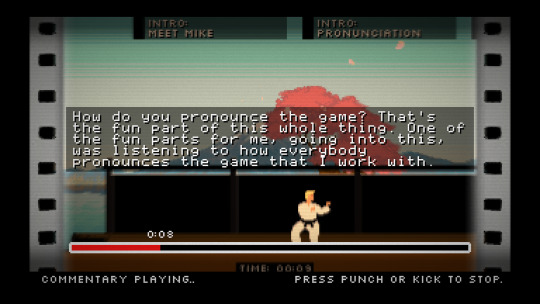
It's well done. Some of the fully-redrawn scenes are a bit overpainted for my taste (I'd prefer a pixel art rendition of the castle than a blurry photographic collage, although there were many games in the 90s that did take this approach), but the in-game graphics are really in style, including the smooth animations that are like one would imagine granted a beefier CPU. It's also a sort of director's cut with previously unseen scenes added, in particular, the battle with the leopard as a clever action-puzzle in the middle. The AI is unfortunately even less challenging than Jordan's implementation. As great as the 6-move fighting system could have been, you yet again resort to simply kicking away opponents as they tirelessly crawl into your range. There isn't even the nuance from the original where you were the one who had to approach some enemies with skilled timing. On the other hand, you now have optional goals and achievements that make the repetitive/easy combat work in your favor (stringing various combos, beating opponents or the level under a time limit …). As the Digital Eclipse president Mike Mika admits at the end of the welcome commentary mode, they didn't manage to achieve their perfect port, but they did come close.
In conclusion, I thoroughly enjoyed playing both the original as well as the remake and while the combat system lacks any sort of depth beneath its stunning animations, Karateka is instead a monumental experience for its presentation. Big characters with personality and realistic motion are displayed through cinematic camera cuts and story vignettes (3 years before Ron Gilbert came up with the word "cutscene"). There are details like animating the unfortunate falling off the cliff at the start of the game, or respectfully bowing to the first guard as they bow in return. Jordan's creative work is precious and worth the attention this release gifts it.
I highly recommend The Making of Karateka to all retro gamers and/or game developers for its immersive documentation which provides an experience that goes beyond the usual video documentaries. It's interactive—just like the subject it's talking about—something I want to see more in the future. And if the $20 by any chance seems high to you, consider that the original retailed at $35 (and that was in 1984 dollars).
youtube
77 notes
·
View notes